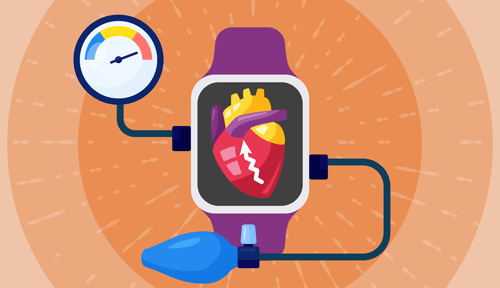Medicine
A Lesser-Known Psychedelic Drug Shows Promise for PTSD Treatment
Ibogaine, derived from a central African shrub, has been used in rituals for two millennia. But in a small study, it appeared to reduce symptoms of PTSD among veterans
Meet 'Hercules,' the Largest Male Funnel-Web Spider Ever Found
Despite belonging to the most venomous arachnid species on Earth, the spider will be using his bite for good in a program to produce antivenom
These Ants Can Diagnose and Treat Their Comrades' Infected Wounds
Matabele ants in sub-Saharan Africa often sustain injuries while hunting termites—and their survival strategy may help humans fight infections, too
Engineers Design a Vibrating Pill for Weight Loss That Could Create a Feeling of Fullness
The capsule is the size of a multivitamin, and in an experiment with pigs, it appeared to reduce the animals' appetites
Seven Scientific Discoveries From 2023 That Could Lead to New Inventions
Biologists learned lots about animals and plants this year, and their findings could inspire better robots, medicine and environmental technologies
Tiny 'Robots' Made From Human Cells Show Wound-Healing Potential
The so-called "anthrobots" can self-assemble and move on their own, and they prompted damaged neurons to regenerate in a recent study
These May Be the Last Photos Ever Taken of Florence Nightingale
The rare images are among a collection of artifacts connected to the "Lady with the Lamp" that recently sold at auction
The Ten Best Science Books of 2023
From stories on the depths of the ocean to the stars in the sky, these are the works that moved us the most this year
Brain Implants Show Promise for People With Traumatic Brain Injuries in Small Study
Electrodes placed in the brains of five patients led to "profound" improvements in cognitive function, even years after their injuries
Here's What Can Cause Itchiness, According to New Research
Scientists discovered a connection between a bacteria linked to eczema and an itch-causing enzyme in a study of mice
Scientists Created a Monkey With Two Different Sets of DNA
So-called "chimeric" monkeys could help scientists understand human diseases and aid in conservation efforts, but the research raises ethical questions
An Inside Look at the Effort to Curb Deadly Snakebites in India
With around 58,000 human deaths from snakebites each year in the country, a lot more must be done to save lives
Are Psychedelics the Future of Eating Disorder Treatment?
The drugs have been shown to reduce depression and anxiety symptoms and make individuals more flexible in their thinking
Surgeons Perform World's First Whole Eyeball Transplant on Arkansas Veteran
The patient, who suffered a severe electrical accident in 2021, currently has no vision in the transplanted eye, but doctors say he's recovering well
Modern Medicine Traces Its Scientific Roots to the Middle Ages
Contrary to popular belief, early medieval doctors relied on rational deduction to understand and treat disease
Millions More Smokers Should Be Screened for Lung Cancer—Even if They Quit Long Ago
The American Cancer Society released new guidance on who should get yearly scans for lung cancer, the leading cause of cancer death around the world
Health Care Workers Are Burning Out, CDC Says
Depression, anxiety and harassment of health professionals have risen beyond crisis levels, per a new report from the agency
New Devices Could Change the Way We Measure Blood Pressure
Embedded in a cellphone or in accessories such as rings, bracelets or watches, the novel tools aim to make it easier to manage hypertension
Genetically Modified Silkworms Can Produce Spider Silk That's Stronger Than Kevlar
The sturdy, biodegradable fibers could one day be used for surgical sutures or armored vests
What's Really the Average Human Body Temperature?
Long thought to be 98.6 degrees Fahrenheit, the measurement is highly personal and varies depending on time of day, among other factors, new research finds
Page 2 of 53
:focal(531x634:532x635)/https://tf-cmsv2-smithsonianmag-media.s3.amazonaws.com/filer_public/fe/f7/fef71ca3-8e96-43aa-ad36-d365b0539d20/ezgif-1-f26190c6b3.jpg)
:focal(541x614:542x615)/https://tf-cmsv2-smithsonianmag-media.s3.amazonaws.com/filer_public/eb/51/eb51a5d1-1a77-4ee0-8f59-9eadb11eafc5/spider.jpeg)
:focal(640x396:641x397)/https://tf-cmsv2-smithsonianmag-media.s3.amazonaws.com/filer_public/b1/d7/b1d7a054-f8e7-4abb-981e-59c4c3931bf8/csm_0102ameisenerkennen1www_9587540f09.jpg)
:focal(450x300:451x301)/https://tf-cmsv2-smithsonianmag-media.s3.amazonaws.com/filer_public/b9/31/b9315b10-032c-465f-97de-e4073bfe1906/mit_obesity-treatment-02-press.jpg)
:focal(960x649:961x650)/https://tf-cmsv2-smithsonianmag-media.s3.amazonaws.com/filer_public/52/0c/520c1e9a-9a4e-4182-a0e6-2530427f0848/monarch-butterfly.jpg)
:focal(555x523:556x524)/https://tf-cmsv2-smithsonianmag-media.s3.amazonaws.com/filer_public/e0/c5/e0c570cd-473f-4748-83e9-20c35437129b/anthrobot_with_cilia_02.jpg)
:focal(1088x767:1089x768)/https://tf-cmsv2-smithsonianmag-media.s3.amazonaws.com/filer_public/75/3b/753b6d38-6300-4b8c-8d07-4e89d32f81be/nightingale.jpg)
:focal(800x602:801x603)/https://tf-cmsv2-smithsonianmag-media.s3.amazonaws.com/filer_public/54/95/5495bf57-cfac-40d7-a1ac-4fc8f56baa3e/booklist-2023-science.jpg)
:focal(400x229:401x230)/https://tf-cmsv2-smithsonianmag-media.s3.amazonaws.com/filer_public/5c/f9/5cf9b986-b03c-4983-a6e9-12c4640b0622/gettyimages-1607068544.jpeg)
:focal(400x267:401x268)/https://tf-cmsv2-smithsonianmag-media.s3.amazonaws.com/filer_public/45/b8/45b8d233-f443-4a76-a170-3464ef094741/gettyimages-1573800978.jpeg)
:focal(350x237:351x238)/https://tf-cmsv2-smithsonianmag-media.s3.amazonaws.com/filer_public/14/13/1413891e-20a1-455a-ae86-de4e417a67b3/chimericmonkey.jpeg)
:focal(800x602:801x603)/https://tf-cmsv2-smithsonianmag-media.s3.amazonaws.com/filer_public/2c/b2/2cb2194b-261e-4765-9a9c-8e322004bd2a/spectacled-cobra-in-a-farm_web.jpg)
:focal(800x602:801x603)/https://tf-cmsv2-smithsonianmag-media.s3.amazonaws.com/filer_public/78/d6/78d648c2-38db-4f40-8c8e-823b64f23a5c/gettyimages-1441480865_web.jpg)
:focal(833x488:834x489)/https://tf-cmsv2-smithsonianmag-media.s3.amazonaws.com/filer_public/07/29/0729d1e1-edef-4ebc-b854-659fdf480edb/aaron_sees_his_new_face_for_the_1st_time.png)
:focal(700x527:701x528)/https://tf-cmsv2-smithsonianmag-media.s3.amazonaws.com/filer_public/ce/b6/ceb64f57-8510-4d00-a71d-47a68fe6d9f6/manuscript.jpg)
:focal(1081x695:1082x696)/https://tf-cmsv2-smithsonianmag-media.s3.amazonaws.com/filer_public/f7/1a/f71aa629-6931-4c16-a4b5-6a7f869ff224/gettyimages-1264092805.jpg)
:focal(1061x707:1062x708)/https://tf-cmsv2-smithsonianmag-media.s3.amazonaws.com/filer_public/f8/df/f8df6508-821b-4659-96b2-da067620659d/gettyimages-1474843773.jpg)

:focal(1728x1747:1729x1748)/https://tf-cmsv2-smithsonianmag-media.s3.amazonaws.com/filer_public/4e/5d/4e5ddd18-2198-4c22-be82-2e26fbc0ea9c/silk_fibers_produced_by_transgenic_silkworms_credit_junpeng_mi.jpg)
:focal(3118x2078:3119x2079)/https://tf-cmsv2-smithsonianmag-media.s3.amazonaws.com/filer_public/55/57/5557e687-8141-4511-af48-4b0f9920e1f3/pexels-rdne-stock-project-8363035.jpg)